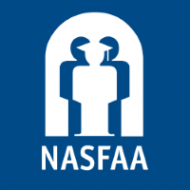Veterans’ Education Advocates Urge ED to Close 90/10 Loophole During Negotiated Rulemaking Public Hearing

NASFAA
Owen Daugherty, NASFAA Staff Reporter
October 27, 2021
Several members of the public expressed their desire for the Department of Education (ED) to close what is often referred to as the “90/10 loophole” during a negotiated rulemaking public hearing on Tuesday.
Critics have long argued that changes are needed to the 90/10 rule, which stipulates for-profit institutions can receive no more than 90% of their revenue from federal financial aid funds. The “loophole” term has been tagged to the rule because military education benefits were not counted as federal financial aid, meaning schools could recruit student veterans in order to receive more federal funding.
ED is looking to make regulatory changes to the 90/10 rule as part of its negotiated rulemaking process, and Tuesday marked the first of two days in which ED is receiving feedback from stakeholders and other interested parties to provide comments as part of public hearings.
The public hearings come after the American Rescue Plan Act of 2021 made changes to the 90/10 rule. That law modified the Higher Education Act to change the formula from counting only Title IV program funds to instead include all ‘‘federal funds that are disbursed or delivered to or on behalf of a student to be used to attend such institution” or collectively referred to as “federal education assistance funds.” The change will go into effect in 2023.
As ED officials consider regulatory language regarding the changes brought forth by the law, they heard overwhelming support from those who offered public comment to close the loophole, including from several student veterans who were defrauded by for-profit institutions.
Jesse Cruz, an Army veteran and first-generation college student, spoke to his experience at ITT Educational Services, Inc. (ITT) and how he felt he was taken advantage of because of his status as a student veteran and the federal funds that came along with that status.
Amy Laitinen, director of higher education policy at New America, urged ED to be on the lookout for those who will attempt to “create new waivers, loopholes, and exceptions” and “a whole industry of creative financial arrangements that will pop up to [undermine] the intent of the law.”
Will Hubbard, vice president for veterans and military policy at Veterans Education Success, pointed to the fact that while the law may have legally closed the door to the loophole, “it is not yet locked.”
“Schools so entirely reliant upon federal funding to survive, are — by definition — unable to succeed on the merits of what they offer,” he said. “This reliance breeds fraud, deception, and inevitable collapse.”
He also called on the department to ensure there are no extra waivers or “special carve-outs” around the law. “Either schools meet the standard or they’re in violation — it really is as simple as that,” he said.
Representatives from several veterans groups made appearances Tuesday to note the years of work they have put in to close the 90/10 loophole. Others highlighted the predatory tactics that recruiters from for-profit institutions use to enroll student veterans and other students.
“We had hoped that Congress would act and we were rewarded when the 90/10 loophole was closed earlier this year,” said David Proferes, policy coordinator for The American Legion’s veterans employment and education division. “However, the fight for student veterans is not over. The law must be implemented such that veterans and their families are safeguarded.”
A second public comment period will take place Wednesday. Stay tuned to Today’s News for coverage throughout the negotiated rulemaking process.
Publication Date: 10/27/2021








